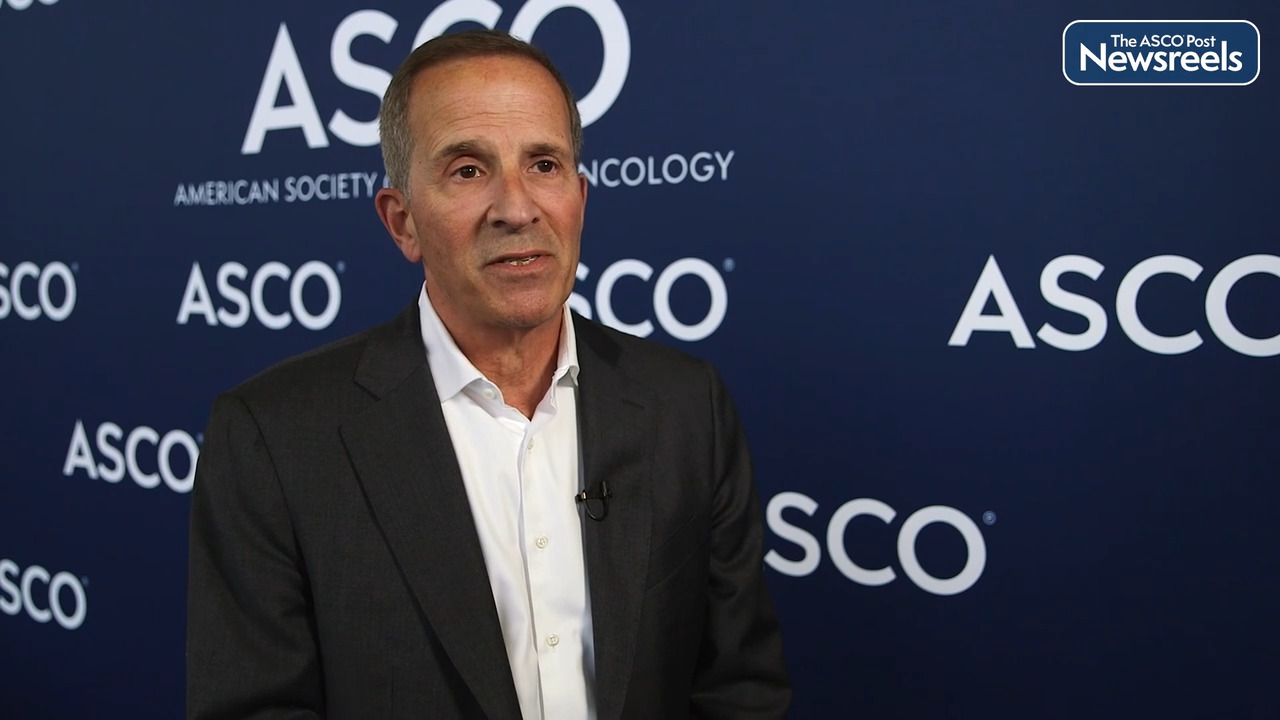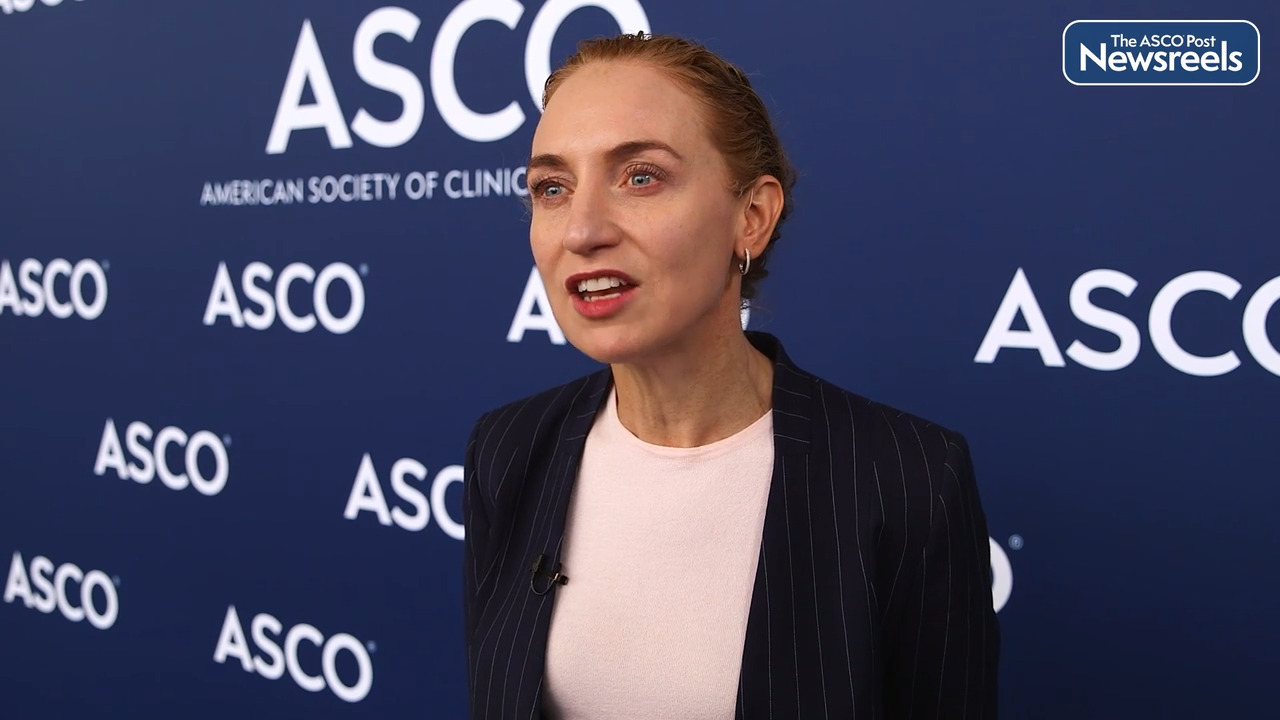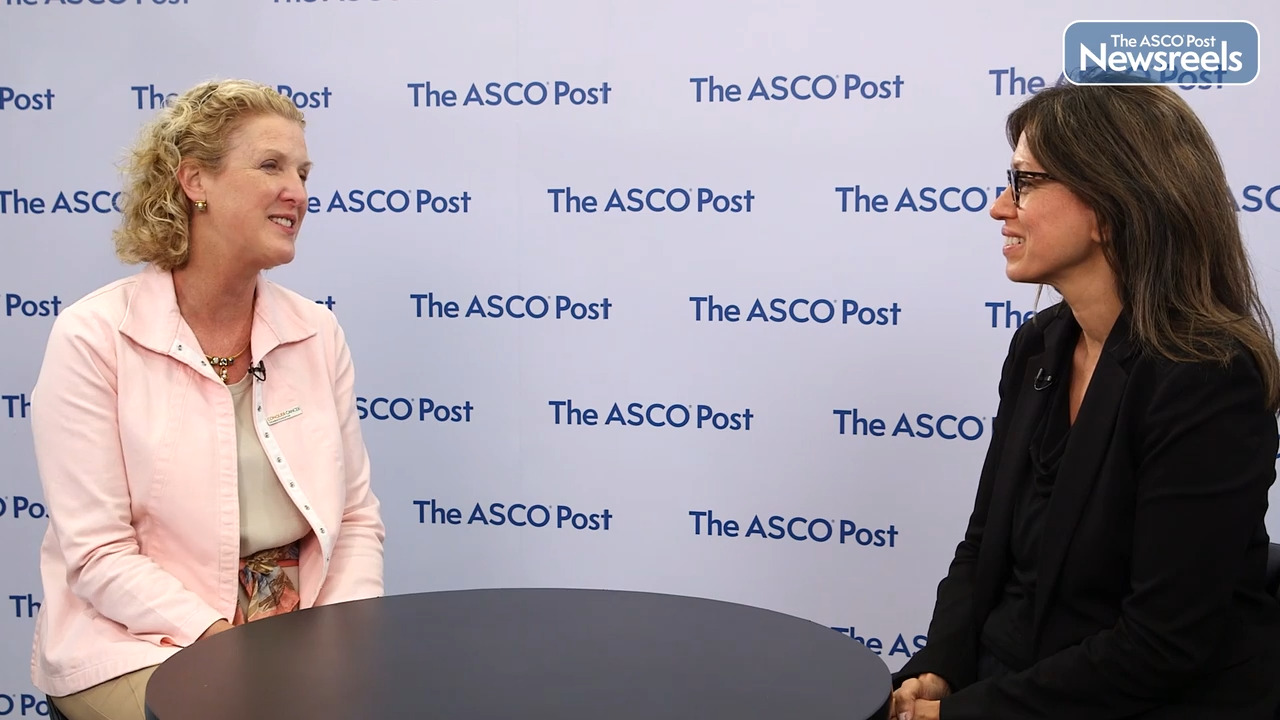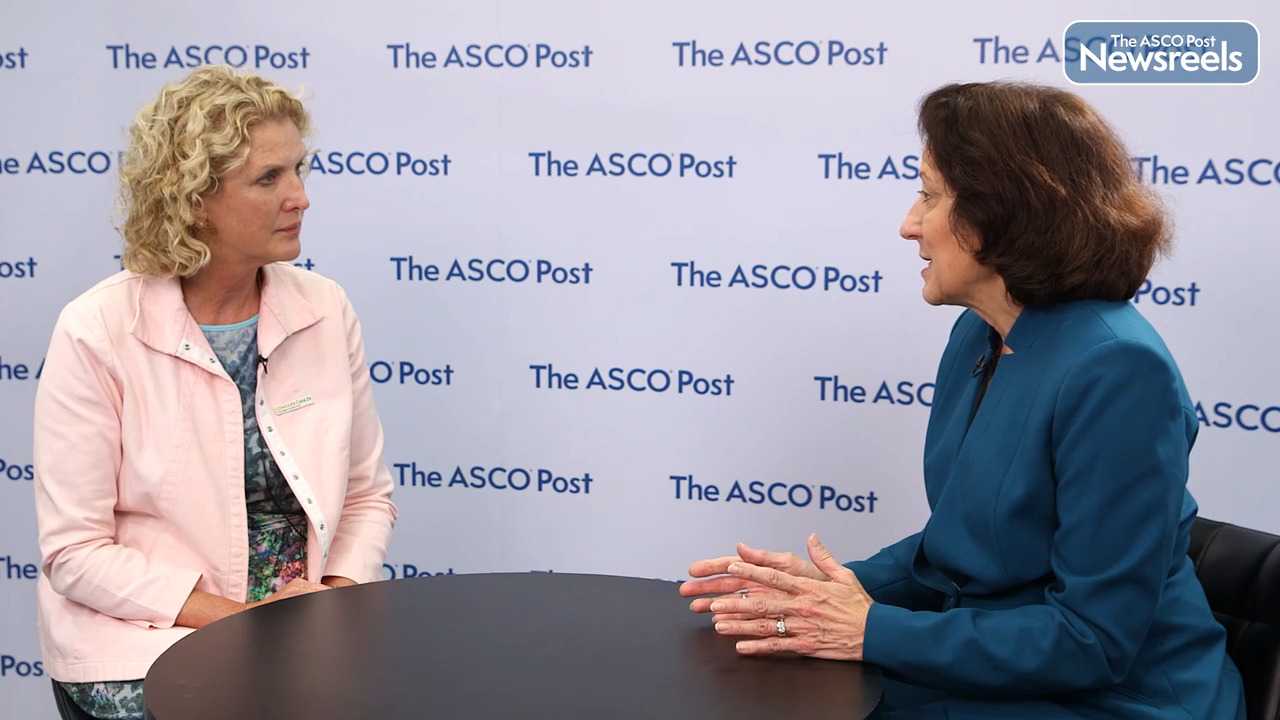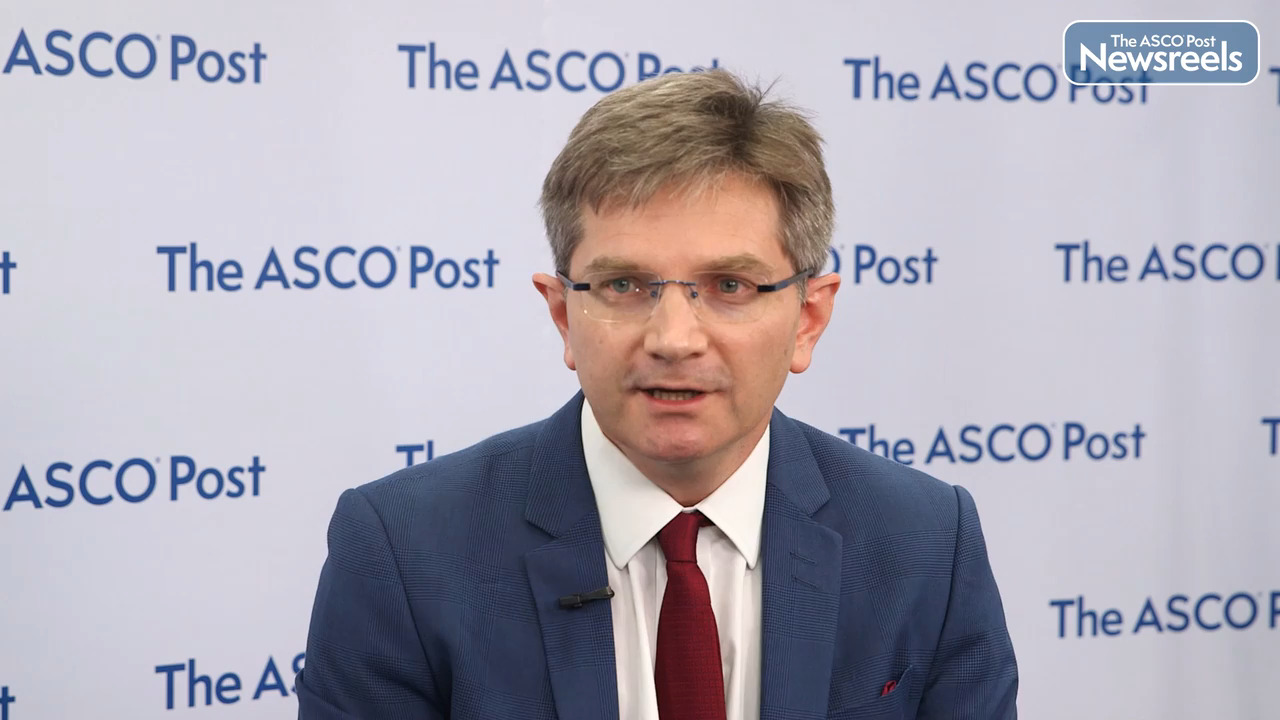Manali I. Patel, MD, MPH, on Equitable, Value-Based Care: The Effectiveness of Community Health Worker–Led Interventions
2022 ASCO Annual Meeting
Manali I. Patel, MD, MPH, of Stanford University School of Medicine, discusses clinical trial findings on the best ways to integrate community-based interventions into cancer care delivery for low-income and minority populations. Such interventions may improve quality of life and patient activation (often defined as patients having the knowledge, skills, and confidence to manage their health), as well as reduce hospitalizations and the total costs of care (Abstract 6500).
Transcript
Disclaimer: This video transcript has not been proofread or edited and may contain errors.
I'm so excited to present our work that's been a multi-year collaboration with a community-based organization and employer union health fund that provides health benefits to individuals who would otherwise not have health insurance. These are individuals that drove us to McCormick. They're individuals that work in our hotels here in Chicago. They're also individuals that work in casinos across the United States. They approached us almost 10 years ago, asking for us to help to consider how to redesign cancer care, such that their employees, once they were diagnosed with cancer, would be able to achieve equitable care at lower costs. 10 years ago, we launched an initiative. We conducted a pilot study in Chicago amongst individuals here where we paired them with a community health worker to help to engage patients in advanced care planning, as well as symptom management. And we found significant improvements in goals-of-care documentation. Using community-based participatory research methods, which means that we involved a community advisory board who guided us throughout every aspect of the project, we created a randomized trial of the pilot. Individuals that were randomized to the intervention arm received a community health worker as part of their care. This community health worker was bilingual and bicultural and would assist patients with advanced care planning and symptom management, but then also assisted patients with screening for complications from social determinants of health. So, for example, they would screen for food insecurity and connect patients to the local food bank, or they would screen for housing insecurity and connect individuals to the housing authority. Individuals as part of usual care received a benefit redesign. Every individual, either in the intervention arm or in the usual care arm, which received usual care, which was the control group, they received cancer care services that were free of charge if they went to the oncology provider that was the highest performing in the city. We conducted this randomized trial in Atlantic City and Chicago. There were 160 individuals that were randomized, 80 into each arm. And we followed patients for 12 months in an intent-to-treat analysis. And what we found was a significant improvement in our primary outcome, which was health-related quality of life. And that was an improvement of almost 11 points in the functional assessment cancer therapeutics general assessment. We also found significant reductions in acute care use, meaning hospitalizations reduced over a 12-month period. So mean hospitalizations amongst individuals in the intervention arms was significantly lower than those in the control room. We also found significant improvements in people's engagement and confidence to manage their own health, something called patient activation. And then here at ASCO, we presented the results on total cost of care as well, and found a significant reduction in total cost of care of almost 50% median total cost of care difference. These results move us from action of disparities to interventions that help to achieve health equity. And the next step is to disseminate this work across all the employer union health fund practices across the United States.
Related Videos
The ASCO Post Staff
Neal D. Shore, MD, of the Carolina Urologic Research Center, discusses his study findings, showing that germline genetic testing influenced care for patients with prostate cancer. Men whose genetic test was positive for a pathogenic germline variant received more recommendations for changes to follow-up and treatment, and for testing and counseling of relatives, than did patients with negative or uncertain test results (Abstract 10500).
The ASCO Post Staff
Georgina V. Long, MD, PhD, of the Melanoma Institute Australia, The University of Sydney, discusses phase III findings from the KEYNOTE-716 study. The trial showed that compared with placebo, adjuvant pembrolizumab significantly improved distant metastasis–free survival in patients with resected stage IIB and IIC melanoma. The findings also suggest a continued reduction in the risk of recurrence and a favorable benefit-risk profile (Abstract LBA9500).
The ASCO Post Staff
Lisa A. Carey, MD, of the University of North Carolina Lineberger Comprehensive Cancer Center, and Shanu Modi, MD, of Memorial Sloan Kettering Cancer Center, discuss the phase III findings from the DESTINY-Breast04 trial, which compared fam-trastuzumab deruxtecan-nxki (T-DXd) vs treatment of physician’s choice (TPC) in patients with HER2-low unresectable and/or metastatic breast cancer. T-DXd is the first HER2-targeted therapy to demonstrate clinically meaningful improvement in progression-free and overall survival compared with TPC in this patient population, regardless of hormone receptor or immunohistochemistry status or prior use of CDK4/6 inhibitors (Abstract LBA3).
Lisa A. Carey, MD, of the University of North Carolina Lineberger Comprehensive Cancer Center, and Hope S. Rugo, MD, of the University of California, San Francisco, Helen Diller Family Comprehensive Cancer Center, discuss phase III results from the TROPiCS-02 trial. This study showed that sacituzumab govitecan-hziy was more beneficial than single-agent chemotherapy in terms of progression-free survival in heavily pretreated patients with hormone receptor–positive/HER2-negative and unresectable advanced breast cancer (LBA1001).
The ASCO Post Staff
Benoit You, MD, PhD, of Lyon University hospital (HCL, France) and GINECO group (France), discusses findings from the GOG-0218 trial of patients with ovarian cancer, which appears to confirm earlier data on the link between poor tumor chemosensitivity and benefit from concurrent plus maintenance bevacizumab. In Dr. You’s validation study, patients who derived the most progression-free and overall survival benefit from bevacizumab were those with high-risk disease (stage IV or incompletely resected stage III) associated with an unfavorable KELIM score (CA-125 kinetic elimination rate constant, calculable online) (Abstract 5553).
